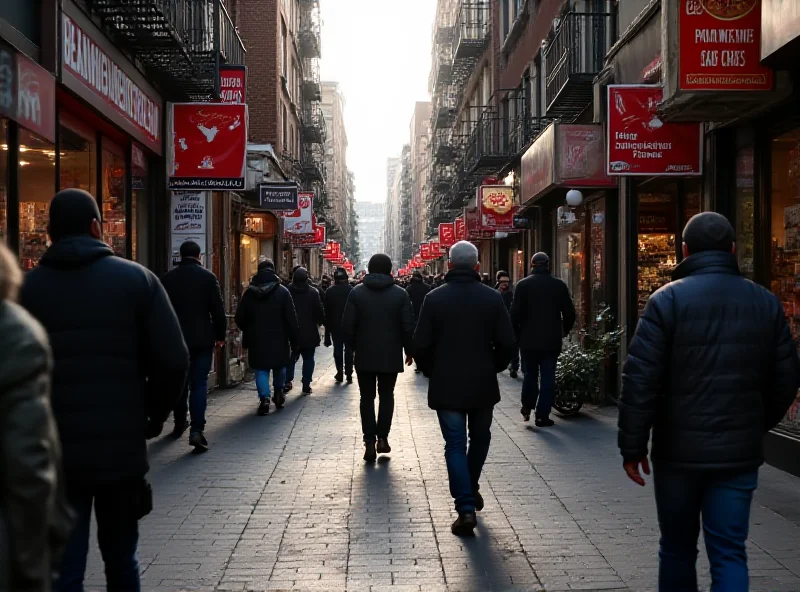The markets are struggling to keep up with the whirlwind of policies and influences associated with former President Trump, leading to a period of heightened uncertainty across various sectors. From rising interest rates to trade tariffs and immigration concerns, the economic landscape is proving difficult to navigate for businesses both big and small.
Interest Rates and Market Volatility
One of the primary challenges facing the market is the fluctuation of interest rates. As interest rates rise, markets struggle to adapt, creating uncertainty among investors. This is further complicated by the dynamic and sometimes unpredictable policy actions associated with Trump. The interplay of rate changes and market confidence creates uncertainty, reflecting broader economic and political tensions.

Ross Stores Inc., a discount retailer, recently experienced a drop in share price after forecasting potentially weaker same-store sales this year. This downturn was attributed to slowing sales trends, inclement weather keeping consumers indoors, and ongoing economic concerns. "We are seeing heightened volatility," a Ross Stores representative stated, "but it's too early to gauge the impact of this Trump policy." This sentiment reflects a broader unease among businesses as they attempt to predict the long-term effects of the former president's policies.
Tariffs: Winners and Losers
Trump's aggressive tariff policy is another source of market anxiety. While some sectors of the economy may benefit from these tariffs, others are likely to suffer. The long-term consequences of these policies are still unfolding, but it's clear that they are no longer simply a negotiation tactic.
“These tariffs are a double-edged sword,” explains one economic analyst. “While they might protect certain domestic industries, they also increase costs for consumers and businesses that rely on imported goods.”

The Human Cost: Deportation Fears and Local Business
Beyond the macro-economic effects, Trump's policies are also impacting individuals and local communities. Despite mass deportation threats not fully materializing, the fear among immigrant communities is causing many to stay home. This has led to reduced customer foot traffic and lower sales for local businesses.
One shopkeeper told Business Insider, "Reality hasn't lived up to Trump's mass deportation threats, but worries are keeping some immigrants at home." This chilling effect on business highlights the human cost of policies that create fear and uncertainty. The impact is felt most acutely by small business owners who rely on the patronage of diverse communities.

In conclusion, the markets are facing a complex set of challenges in the wake of Trump's policies. From fluctuating interest rates and aggressive tariffs to the human impact of deportation fears, businesses are grappling with uncertainty and volatility. The long-term consequences remain to be seen, but it's clear that these policies are having a significant impact on the economic landscape.
